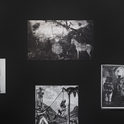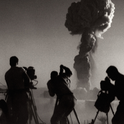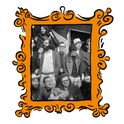by Roger Scruton (Bloomsbury, £16.99)
Despite its subtitle, this book by the conservative philosopher Roger Scruton is not a history of the “New Left.” The original New Left was an intellectual and political tendency that emerged in Britain in the mid-1950s after the Soviet Union’s crushing of the uprising in Hungary, and then reappeared in a different guise in the US during the following decade.
Scruton, though, casts his net much wider. Fools, Frauds and Firebrands (the title tells you everything you need to know) takes in thinkers as diverse as the American liberal political theorists John Rawls and Ronald Dworkin, on the one hand, and European Marxists such as Alain Badiou and Slavoj Žižek, on the other.
This is not a work of scholarly intellectual history, then, but rather, as Scruton puts it, a “provocation.” His noisy criticisms of left-wing thinkers in the mid-1980s signalled, he recalls, “the beginning of the end for my university career.” Since he no longer has a university career to protect, Scruton can now tweak the nose of academic leftism to his heart’s content.
This desire to provoke sometimes gets the better of him. The discussion of Dworkin, for instance, is undermined by the hyperbolic claim that his mild liberal egalitarianism tends just as surely to a kind of revolutionary sweeping away of custom and tradition as does Žižek’s neo-Leninism. Scruton is at his best (and funniest) when trying to make sense of Badiou’s weird confection of historical materialism and Platonic mathematical theory. As he points out, it is perplexing and regrettable that an elderly French professor’s “glamorous detachment” from the dirty work of “real politics” should still possess the power to seduce.
Despite its subtitle, this book by the conservative philosopher Roger Scruton is not a history of the “New Left.” The original New Left was an intellectual and political tendency that emerged in Britain in the mid-1950s after the Soviet Union’s crushing of the uprising in Hungary, and then reappeared in a different guise in the US during the following decade.
Scruton, though, casts his net much wider. Fools, Frauds and Firebrands (the title tells you everything you need to know) takes in thinkers as diverse as the American liberal political theorists John Rawls and Ronald Dworkin, on the one hand, and European Marxists such as Alain Badiou and Slavoj Žižek, on the other.
This is not a work of scholarly intellectual history, then, but rather, as Scruton puts it, a “provocation.” His noisy criticisms of left-wing thinkers in the mid-1980s signalled, he recalls, “the beginning of the end for my university career.” Since he no longer has a university career to protect, Scruton can now tweak the nose of academic leftism to his heart’s content.
This desire to provoke sometimes gets the better of him. The discussion of Dworkin, for instance, is undermined by the hyperbolic claim that his mild liberal egalitarianism tends just as surely to a kind of revolutionary sweeping away of custom and tradition as does Žižek’s neo-Leninism. Scruton is at his best (and funniest) when trying to make sense of Badiou’s weird confection of historical materialism and Platonic mathematical theory. As he points out, it is perplexing and regrettable that an elderly French professor’s “glamorous detachment” from the dirty work of “real politics” should still possess the power to seduce.












